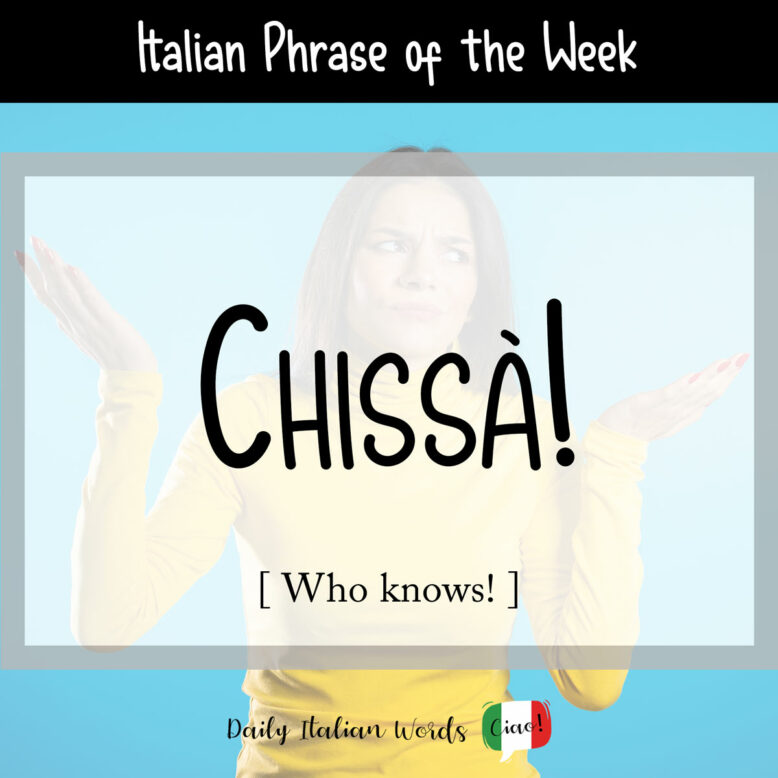Chissà is an interesting word in Italian because it is an abbreviation of chi lo sa (literally, who knows it). The accent on the à tells you that the stress falls on the final syllable.

When used on its own in response to a question, its closest translation is Who knows! or Goodness knows! in English.
Chi è quel ragazzo? – Boh*, chissà!
(Chi è quel ragazzo? – Boh*, chi lo sa!)
Who’s that guy? – Who knows!
Trivia: in spoken Italian, you can use the expression boh! in answer to a question to which you don’t know the answer. It is a friendly expression you can use between friends and family members. It isn’t impolite so you wouldn’t shock anyone by using it in a formal colloquial situation, but you could come across as a bit lazy if you don’t elaborate on your answer.
Within a statement, it can also mean I wonder, perhaps and you never know in addition to who knows. In the end, all these expressions communicate uncertainty, so it doesn’t really matter which translation you choose.
Chissà come mai l’Italiano non è la lingua internazionale più diffusa.
I wonder / Who knows why Italian isn’t the most widespread international language.
Chissà che non si riesca a convincerlo.
Perhaps you can convince him.
You never know, you might be able to convince him.
Chissà quando arriveranno! Sono già le otto!
I wonder / Who knows when they’ll arrive! It’s already eight!
Note that chissà and chi lo sa aren’t always perfectly interchangeable when used within a sentence as you can see by comparing the two examples below:
- Chissà se Marco è andato a comprare il pane. = I wonder if Marco went to buy bread.
- Chi lo sa se Marco è andato a comprare il pane? = Who (amongst you) knows if Marco went to buy bread?
By combining chissà with the pronouns chi (who) and che cosa (what), you can make a comment on the value or worth of a person or thing. For example:
- Daniele si crede chissà chi. = Daniele thinks he’s something special / thinks a lot of himself.
- La qualità non era chissà che cosa. = The quality wasn’t anything special.

Heather Broster is a graduate with honours in linguistics from the University of Western Ontario. She is an aspiring polyglot, proficient in English and Italian, as well as Japanese, Welsh, and French to varying degrees of fluency. Originally from Toronto, Heather has resided in various countries, notably Italy for a period of six years. Her primary focus lies in the fields of language acquisition, education, and bilingual instruction.


